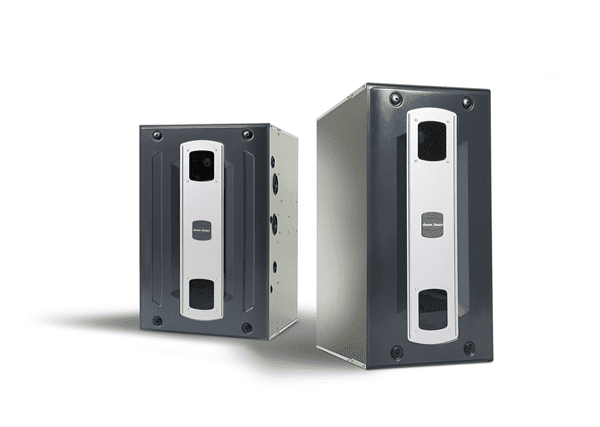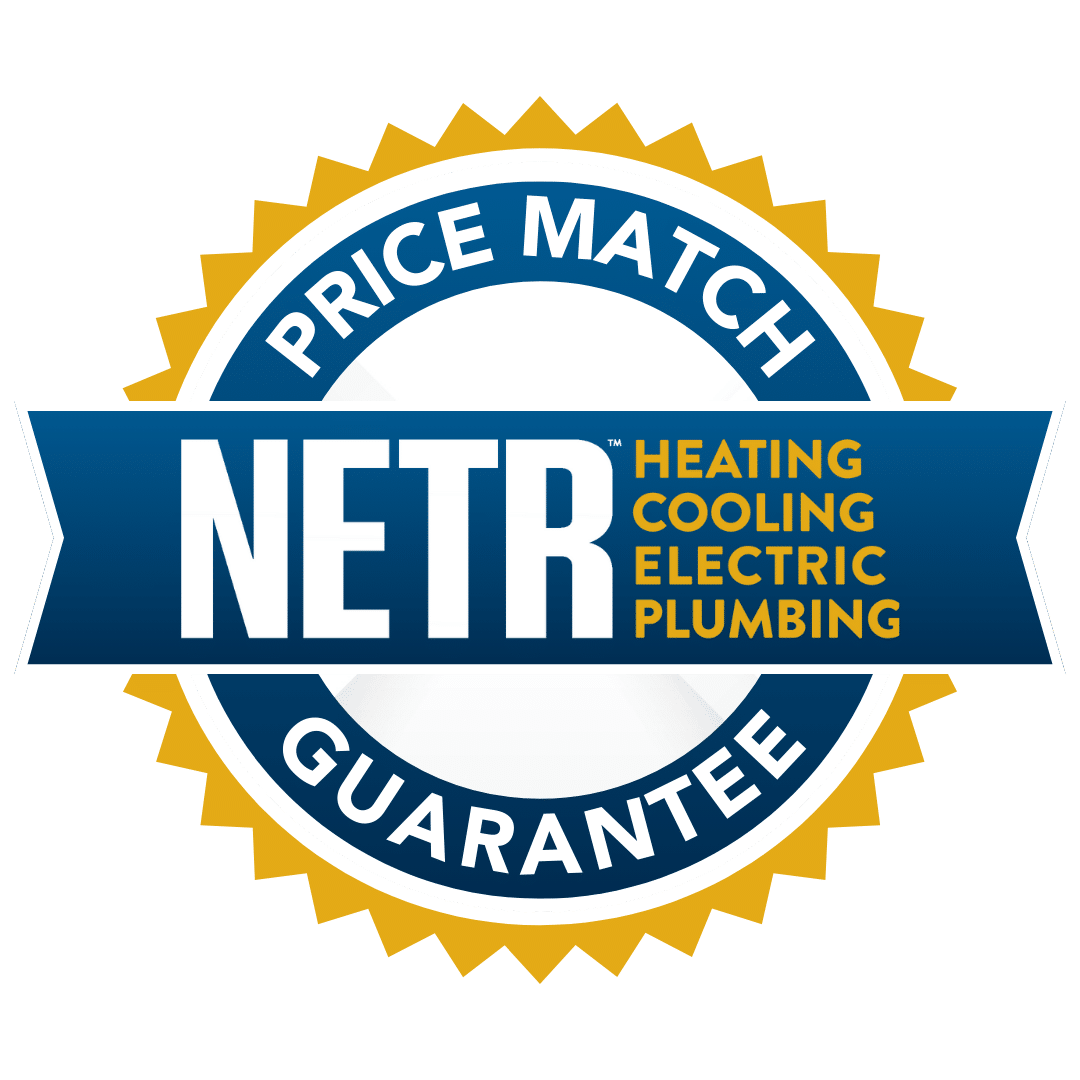Whether you have a heat pump, a gas furnace, or any other type of heater, it needs to work properly so that you can stay warm through the winter. Unfortunately, there are many issues that can cause your equipment to malfunction, leaving you without the heating you need to stay safe and comfortable.

Is your furnace not working properly? If you’re having problems getting your heater to respond to the thermostat or maintain a comfortable temperature in your home, your system may need repairs. To help you get a sense of what’s happening, we’ve put together this brief guide of the most common reasons gas furnaces stop working and what you can do about it.
1. Your Furnace Is Burning Too Much Gas
Gas furnaces need to be calibrated correctly to burn the right amount of fuel, and if they burn too much gas, they may overheat and turn off mid cycle. When installing a gas furnace, the technician should check that the calibration is correct and do a combustion analysis once a year to make sure your furnace is still burning the correct amount of gas.
2. You Have a Dead Blower Capacitor
The capacitor is the component that starts your furnace, so if it’s not working correctly or at all it can’t get your blower moving. Sometimes, a broken capacitor just means your furnace won’t start, but in other cases, it can run the blower at excessively low RPMs, eventually resulting in malfunction. Because this is a relatively common cause of heater breakdowns, HVAC technicians will usually check capacitor tolerances during annual routine maintenance calls, and if they notice an issue, it can be addressed preemptively.
3. Your Heat Pump Has Low Refrigerant
Like air conditioners, heat pumps need the right level of refrigerant to function correctly. You notice uneven heating or unexpectedly high energy bills, it’s possible that your refrigerant levels may be low. An HVAC professional can help you top up and increase the refrigerant charge so your mini-split can continue removing heat from the outdoors to blow inside your home.
4. Your Draft Inducer Motor Is Burnt Out
The inducer motor cleans gas out of the heat exchanger and vents potentially harmful gasses that are created during the combustion process. If dirt and grime build up on this fan motor, it can start pulling high amps and potentially burn out. Alternatively, overheating may cause safety switches to engage that turn the furnace off.
Your technician will check this part during your annual furnace service appointments to make sure you don’t have to deal with a sudden system breakdown in the middle of winter.
5. You Have a Cracked Heat Exchanger
If your heater isn’t working, the culprit may be a cracked heat exchanger. Typically, this problem reduces your furnance’s energy efficiency long before it leads to a system malfunction.
However, depending on the type of furnace, a cracked heater exchanger may leak deadly carbon monoxide (CO) gas into your home. To protect your family, you need to have a working CO detector that gets checked often and replaced as needed.
6. Your Ductwork Was Designed or Installed Incorrectly
Sometimes, heating issues don’t derive from your furnace. Instead, faulty ductwork may be causing your problems. If your ducts are dirty, clogged, or installed in a way that restricts air flow, your furnace won’t be able to run properly. This can cause it to start overheating and short cycling. Depending on the situation, you may need to clean the ducts, have them reinstalled, or consider switching to a ductless HVAC system.
7. You Haven’t Properly Maintained Your System
Proper HVAC maintenance prevents dust from building up in your system that can prevent internal components from working properly. In a lot of cases, heaters stop working simply because they haven’t been maintained properly. Some of most common issues home and business owners have with their HVAC equipment are related to lack of maintenance, like:
- A dirty blower motor. If your blower motor is covered in grime, it can’t blow cool air over your heat exchanger. This can cause the exchanger to overheat and stop working.
- A malfunctioning flame sensor. When your system doesn’t accurately sense your pilot light, it will automatically cut the flow of gas to your heater. Normally, this is a safety feature, but if your flame sensor is dirty, it will cut the gas even when a flame is present.
- Clogged air filters. Dirty filters inhibit air flow through the entire furnace, contributing to a myriad of different problems and lowering your overall air quality.
A qualified furnace repair professional can identify the problem and get your furnace back up and running again as soon as possible. To minimize the risk of future breakdowns, it’s important to become proactive about routine HVAC maintenance.
8. Your Thermostat Needs to Be Updated
One easy issue to check for before you call an HVAC contractor is your thermostat. If it’s not sensing the ambient temperature of the room accurately, it could need calibration or new batteries. An old thermostat may need to be replaced entirely.
That said, if you suspect that loose electrical connections might be a problem, you’ll want to reach out to a professional sooner rather than later. This isn’t a DIY fix and requires the expertise of a qualified and licensed electrician.
9. You Have a Broken Blower Belt
If the air coming from your vents is weak or you notice that rooms far away from the furnace aren’t getting any air, there’s a good chance there’s something wrong with your blower. The fan belt might be the culprit if you also hear chirping or screeching sounds.
Belts are typically made of rubber, which dries out, hardens, and cracks over time. These components will naturally wear out and need to be replaced as part of your HVAC system’s routine maintenance.
10. Your Condensate Line Is Frozen
Traditional gas and oil furnaces have a component called a burner that converts fuel to heat via the combustion process. If the burner gets sooty, clogged, or rusted, it may not work as effectively.
The result is inconsistent heating, cold air coming from your vents, and the risk of carbon monoxide leaks. Your furnace also has to work harder and run longer to reach your desired temperature settings, which puts more wear and tear on your system and increases your energy bills.
11. Your Flame Rollout Switch Was Tripped
Near the burner is a safety feature called a flame rollout switch. The switch is designed to consistently monitor the temperatures around the burner and automatically shut off the furnace if they rise too high. This helps prevent dangerous fires but can also be inconvenient if the switch happens to trip without a legitimate safety issue.
A few things to check if you suspect the flame rollout switch was triggered are your air filters, burner, flue pipe, and heat exchanger. These should be clean and free of damage to avoid overheating your furnace and flipping the switch.
12. Your Draft Inducer Motor Is Broken
Your furnace’s draft inducer motor is responsible for funneling harmful exhaust and uncombusted gasses out of your home. When your system senses this isn’t working properly, your furnace won’t start to prevent safety issues like gas leaks and fires.
Signs of this problem include grinding or screeching noises when you turn on your system and inconsistent airflow coming from your vents. Regular maintenance can help prevent this issue by identifying problems early and replacing worn components before they break.
Get In Touch With Our Certified Boston HVAC Technicians Today
At N.E.T.R., Inc., our experienced HVAC contractors can help you troubleshoot your furnace and fix the problem as quickly as possible, so you can get back to what’s most important. Contact us today by calling (781) 933-6387 or fill out our quick online form here and our team of heating professionals will get in touch as soon as possible to help.

